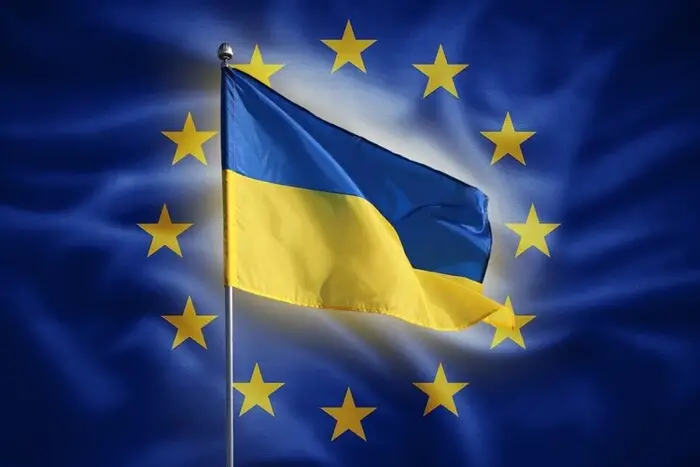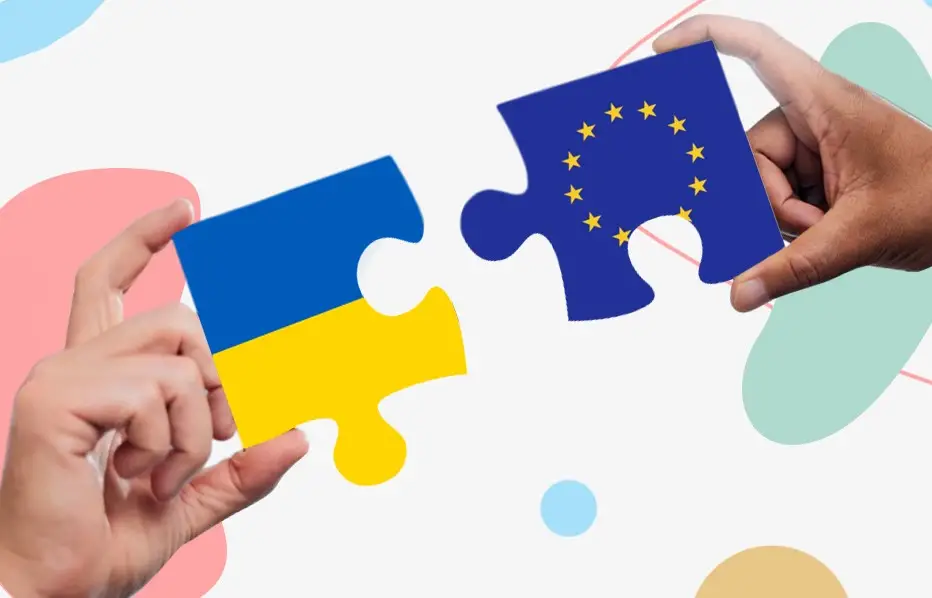Ukraine and the EU officially start accession talks: a new page in history or a fiction?

What problems may Ukraine face before European integration?
On June 25, an intergovernmental conference was held in Luxembourg to officially launch negotiations on Ukraine's accession to the European Union. The conference was attended by the Prime Minister of Ukraine, Denys Shmyhal and the Minister of Foreign Affairs of Belgium, Hadja Lahbib.
"We recognise that there is a lot of work ahead. We are ready for it. We have already shown that we can act quickly and achieve the seemingly impossible. Today's event clearly demonstrates this", Shmyhal said.
He emphasized that Ukraine's future membership in the EU is the best response to the challenges facing Europe and a "unique opportunity" to strengthen the EU.
"We are convinced that helping Ukraine defeat the russian aggressor and overcome the challenges of post-war reconstruction will be Europe's greatest achievement in recent decades", the Prime Minister added.
Hadja Lahbib emphasized that both future and current EU members should be ready for the Union's enlargement. Work in both directions should be done in parallel.
"The enlargement process is a geostrategic investment in peace, security, stability and prosperity. It contributes to improving the economic and social conditions of citizens, reducing inequality between countries and upholding the values on which the Union was founded", she added.
President of Ukraine Volodymyr Zelenskyy welcomed the official start of the talks.
He noted that now we need to focus on the technical work of Ukraine with the European Union, the adaptation of our system to the EU requirements and the political will of Europe to make the European project perfect.
"When we signed an application for accession to the European Union together on the fifth day of the full-scale war, many people said that it was just a dream. But we have realized this dream", the president emphasized.

The Hungarian Problem
EU leaders gave the green light to negotiations on Ukraine's accession in December 2023 at a summit in Brussels. At that time, they managed to neutralize the "Orban factor" by unblocking 10 billion euros for Hungary, which had been frozen due to problems with the rule of law in that country.
During the final vote, when the decision was made by consensus of all members, the Hungarian prime minister was asked to take a break and "go for coffee".
In June, Hungary's objections were related to the fact that, in Budapest's opinion, Kyiv did not sufficiently protect the rights of the Hungarian minority in Ukraine. However, the problem was resolved in a few days by agreeing on a compromise wording on minority rights in the framework agreement. The European Commission also pledged to monitor Ukraine's implementation of reforms in this area and report regularly to EU member states.
Observers and media emphasized that it was important for Kyiv and Brussels to officially start negotiations before July 1, when the EU Council presidency will pass from Belgium to Hungary.
In May, Politico reported that Brussels officials insisted on starting Ukraine's membership talks by early July.
"Unfortunately, Hungary has already made it clear that Ukraine's European integration will not be its priority. It has already announced its priorities for the presidency, and we are not there", Ivanna Klympush-Tsintsadze, chair of the Verkhovna Rada Committee on Ukraine's Integration into the EU, told Ukrinform in an interview.
This was also confirmed by Hungary's official representative to the EU, Balint Odor, who said at a briefing on 18 June that Budapest would closely follow the developments in Ukraine and would include all necessary aspects in the agenda if necessary.
He also emphasized the areas that are important for Hungary: EU competitiveness, economic relations with third countries, easing the administrative burden for business, defense policy and cooperation in arms procurement. The Western Balkans are among the European integration priorities of Hungary's presidency of the EU Council.

What other problems may arise
The obstacles on Ukraine's path to EU membership may arise not only because of Hungary and may be both minor procedural and global.
This is clearly demonstrated by the example of the Netherlands, which officially agreed on a negotiation framework with Ukraine only after a vote in parliament, and a few days before the intergovernmental conference and the start of negotiations.
The talks promise to be difficult, said Polish Minister for EU Affairs Adam Szlapka, as he said, "there are disputed areas".
The main one of these disputed areas, both in Ukraine and in the EU, is already called the agricultural sector, which is an important component of the Ukrainian economy.
Since May last year, the blockade of the Ukrainian border, first by Polish farmers and later by carriers, has shown not only the existence of "disputed areas" but also how Brussels responds to these disputes.
Adam Szlapka made the statement about the complexity of the negotiations at a briefing with Deputy Prime Minister, Minister for European and Euro-Atlantic Integration of Ukraine Olha Stefanishyna after a meeting within the framework of the Weimar Triangle — Poland, Germany and France + Ukraine.
According to the Polish politician, Warsaw understands the complexity of the current situation for Kyiv, but Ukraine should also understand that Poland, Germany, and France have their own interests, and they need to find the best solutions and compromises together.
Obviously, these solutions will not be easy to find, given the changes in the alignment of political forces in Europe after the last European Parliament elections and the upcoming elections in individual countries.
According to EU estimates, for Ukraine's accession, the EU will need to increase its budget by 20% or about 200 billion euros over the seven years that Ukraine's integration into the EU will take.
Currently, Brussels calls this a "justified investment".










